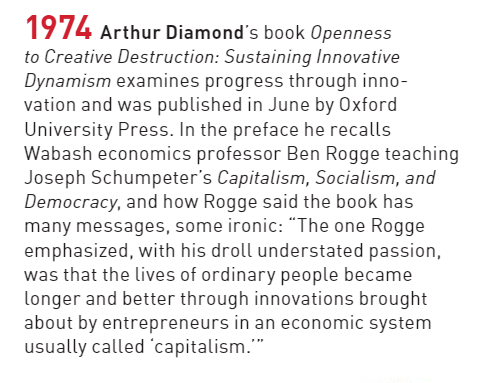(p. F2) When a group of the nation’s largest companies said last month that they had changed their mission strictly from making profits to also include benefiting “customers, employees, suppliers, communities and shareholders,” it was generally applauded as an important step in the right direction.
. . .
Treasury Secretary Steven Mnuchin in his first public comment on the topic, flatly told me: “I wouldn’t have signed it,” stunning a room of policymakers and business leaders in Washington at last week’s DealBook DC Strategy Forum.
His explanation was nuanced: “To be profitable, you have to have a purpose. I think it’s not as simple as saying we either have a purpose or we have profits. I think the problem with creating a simple answer is it doesn’t fully explore the issues.”
He added: “I do think companies should be long-term oriented. I don’t think companies need to necessarily be focused on quarterly profits and hitting Street earnings numbers. But I think, ultimately, a business’s job is to deploy the capital correctly and to make profits.”
Stephen A. Schwarzman, the co-founder and chairman of Blackstone Group and one of only a handful of members of the Business Roundtable who declined to sign the document, also went public with his explanation in a conversation with me earlier this week: “I know why we’re in business: because people give us money to manage. They want us to earn a lot of money to give them back or else they would give us nothing.”
He said “the idea that business should be concerned” with employees, customers, suppliers and the community should be a given. But, he said, he objected to the idea in the Business Roundtable statement that profits should be listed as simply equal to the other four issues.
“I have trouble managing when I don’t know what I’m supposed to be doing,” he said, suggesting the statement gives managers too many masters. “I know what I’m supposed to be doing, which is making good investments, safely, and making a great contribution to these pension funds and regular people.”
For the full commentary, see:
Andrew Ross Sorkin. “Profits or Public Interest?” The New York Times (Thursday, September 19, 2019): F2.
(Note: ellipsis added.)
(Note: the online version of the commentary has the date Sept. 18, 2019, and has the title “Profits or the Public Interest: The Debate Continues.”)


